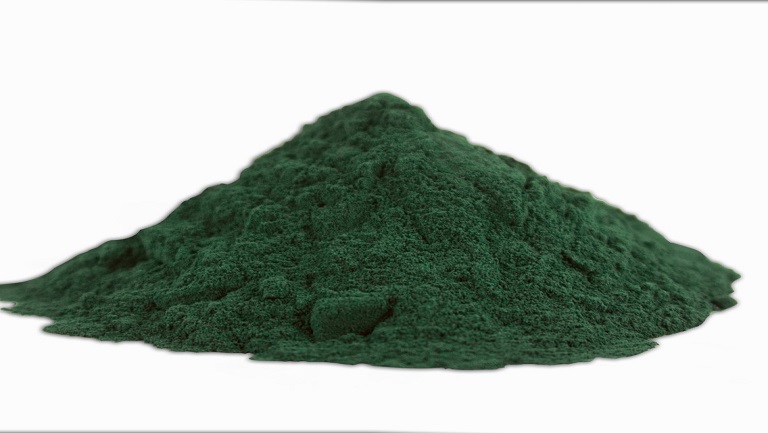C.B.N. Bio-engineering Co., Ltd
C.B.N. Bio-engineering Co., Ltd
Efficacy
Spirulina is a class of lower organisms, prokaryotes, filamentous bodies composed of single or multiple cells, with a body length of 200-500μm, a width of 5-10μm, a cylindrical shape, and a loose or tight regular spiral curve. , Shaped like a clockwork, so named. It has the effects of lowering cholesterol, regulating blood sugar and enhancing immune function.
A. Cholesterol reduction γ-linolenic acid in Spirulina can reduce the cholesterol contained in the human body. Cholesterol reduction can effectively prevent heart attacks and effectively reduce high blood pressure.
B. Regulate blood sugar Spirulina contains many hypoglycemic substances such as Spirulina polysaccharides, magnesium, chromium, etc., which can regulate blood glucose metabolism through various ways (such as promoting insulin secretion, slowing down sugar absorption, promoting substance metabolism, anti-oxidation, etc.).
C. Strengthen the immune system Because the algal polysaccharide and phycocyanin in Spirulina can enhance the proliferation of bone marrow cells, promote the growth of thymus, spleen and other immune organs and promote the biosynthesis of serum proteins, so Spirulina has the ability to strengthen the immune system effect.
D. Prevention and treatment of hyperlipidemia Spirulina contains a large amount of unsaturated fatty acids, of which linoleic acid and linolenic acid account for 45% of the total fatty acids. Both are important components of the cell membrane, which can prevent total cholesterol and triglycerides in the liver, A large amount of accumulation in the blood vessels to avoid damage to the normal physiological function of the cardiovascular.
Nutritional value
Spirulina polysaccharide is the main form of carbohydrate in Spirulina algae, and the content is as high as 14%-16% of dry weight. Almost all the lipids contained in Spirulina are important unsaturated fatty acids, with minimal cholesterol content. The protein content of dry Spirulina powder is as high as 60%-72%, which is equivalent to 1.7 times that of soybeans and 6 times that of wheat. Spirulina is rich in vitamin B1, vitamin B2, vitamin B3, vitamin B6, vitamin B12 and vitamin E, etc., which concentrates the various vitamins that the human body needs most. Spirulina is also a natural treasure house of chlorophyll. It has a large quantity and high quality, accounting for 1.1% of the algae, 2-3 times that of most terrestrial plants, and 10 times that of ordinary vegetables. The type of chlorophyll contained in Spirulina is mainly chlorophyll a. The molecular structure is very similar to that of human heme. It is a direct raw material for human synthesis of hemoglobin and can be called "green blood".
Precautions
Not suitable for food
Spirulina + drugs: may affect the drug effect Spirulina is a health care product, it needs to be more than half an hour away from the drug when taking it, so as not to affect the drug effect.
Suitable and taboo
Suitable: People with low immunity, diabetes, iron deficiency anemia patients
Spirulina is rich in vitamins and trace elements, which can enhance the ability of human immune cells to swallow viruses and improve human immune function. In addition, there are high amounts of phytochemicals in Spirulina tablets, including chlorophyll, phycocyanin, astaxanthin, lutein, and β-carotene. These are natural antioxidants produced by plants, which enhance immunity, Antibacterial, antiviral and other effects.
Diabetics
Spirulina has a hypoglycemic effect, and the efficiency is not lost to common diabetes drugs.
Patients with iron deficiency anemia
Spirulina is rich in iron and has the highest absorbable iron content of all foods. The iron content is 20 times that of general iron-containing foods. It can promote hematopoietic function and improve the symptoms of iron deficiency anemia. In addition, the active substances in Spirulina, phycopolysaccharide and phycocyanin, can enhance the proliferation of bone marrow cells, promote hemoglobin synthesis and bone marrow hematopoietic function in many ways, and play a role in improving anemia.
Contraindications: patients with gout and hyperthyroidism
Spirulina contains a lot of purines, and patients with gout have abnormal purine metabolism and taboo to eat foods that contain more purines. Therefore, patients with gout should not eat Spirulina.
Contraindications: Hyperthyroidism patient
Patients with hyperthyroidism cannot eat Spirulina. Spirulina contains a lot of iodine. Hyperthyroidism is caused by excessive secretion of thyroid hormones and needs to avoid iodine. Therefore, Spirulina cannot be eaten.
Tips
Spirulina is more suitable for taking before a meal, because after a meal may cause gastrointestinal activity and partial food deposition, there will be a decline in digestion and absorption efficiency, reducing the utilization rate and the nutritional value of Spirulina.

Call Us: +86-515-8584-1988
Email Us: gifty@chinaspirulina.com
Address: 21st Floor, Internet building, New East District, Dongtai City, Jiangsu Province, China